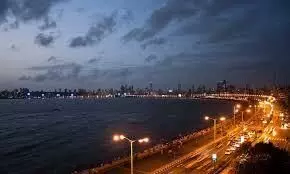
Act now or face consequences: experts warn as Mumbai faces warm nights
text_fields"Mumbai is truly embodying its moniker 'the city that never sleeps,' but this time due to relentless heat," experts caution as temperatures reach unprecedented highs, severely impacting the sleep patterns and health of its residents.
A recent study by Climate Central and Climate Trends revealed that global warming has ushered in extreme nighttime warmth, disrupting residents' sleep and posing serious health risks.
The study reports a notable increase in warm nights across Mumbai, with temperatures exceeding 25 degrees Celsius and an additional 65 unusually hot nights recorded this year alone. This phenomenon is not limited to Mumbai; other cities in Maharashtra, such as Thane, Bhiwandi, and Ulhasnagar, have also experienced a surge in warm nights. Thane and Bhiwandi reported 70 additional hot nights this summer, while Kalyan-Ulhasnagar topped the list with 72.
Climate Trends expert Kartiki Negi emphasized the severity of the situation, highlighting that many cities have broken records spanning five decades due to climate impacts. "If we don't act now, nights will continue to be hot, long, and sleepless, especially for vulnerable populations," she warned.
Pranav Garimella from the World Resources Institute echoed this sentiment, stating, "Studies have repeatedly shown that prolonged exposure to high nighttime temperatures can lead to sleep deprivation, exacerbating existing health issues and impacting productivity." He pointed out that industries such as agriculture and construction are particularly vulnerable, facing potential productivity losses and health risks for their workers.
Experts argue that with rising daytime temperatures and increasingly warm nights, both individual and institutional preparations are necessary to mitigate the dual impact on health and infrastructure. Immediate action is required to address this escalating climate crisis and protect the well-being of millions.























